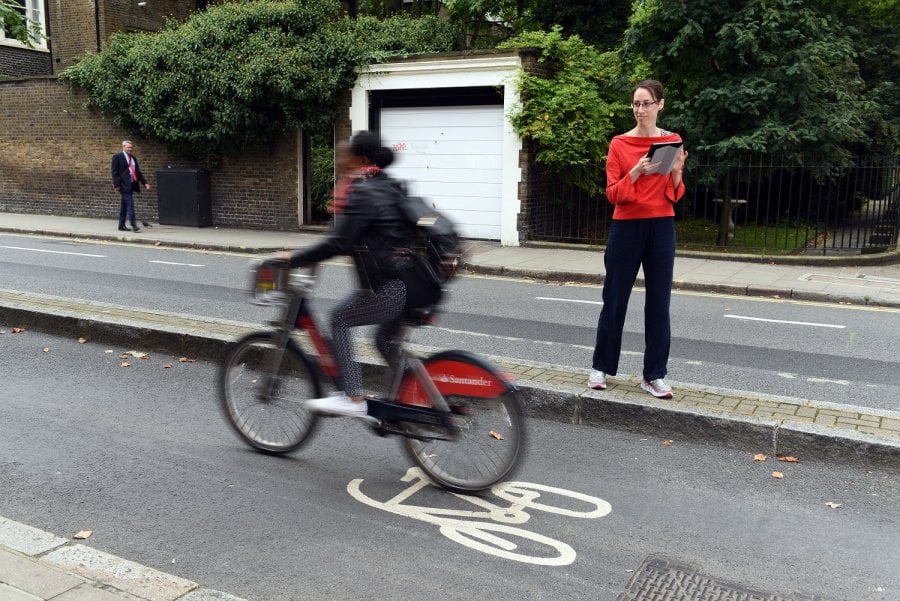Transport for London’s ‘Mini-Holland’ programme associated with more walking and cycling
27 June 2018 London School of Hygiene & Tropical Medicine London School of Hygiene & Tropical Medicine https://lshtm.ac.uk/themes/custom/lshtm/images/lshtm-logo-black.png
London’s Mini-Holland cycling programme, currently being rolled-out in Enfield, Kingston and Waltham Forest, has led to more walking and cycling, according to new research published in Transportation Research Part A.
Co-authored by the London School of Hygiene & Tropical Medicine (LSHTM) and led by the University of Westminster, the study is the first to review the Mini-Holland programme, which consists of over 100 schemes to support walking and cycling across the three boroughs. The Mini-Holland programme is scheduled to run until 2021-2022.
Researchers asked 1,714 people living across Outer London (both inside and outside the boroughs where the Mini-Holland programme has been implemented) about their travel patterns, along with their attitudes toward transport and their local environment.
The ‘natural experiment’ study design involved comparing changes over time in ‘control’ and ‘intervention’ groups, allowing the team to identify the impacts of the Mini-Holland programme, compared to other factors, such as better or worse weather in a particular year. The research looked at changes between May-June 2016 and May-June 2017.
Researchers found that a year’s worth of mini-Holland schemes made it 24% more likely that respondents had used a bike in the past week, compared to people living in ‘control’ areas further away from the schemes.
People living near to where schemes had been implemented had increased their past-week time spent walking and cycling by an extra 41 minutes, compared to people in ‘control’ areas. 32 of the extra 41 minutes were walking, and nine cycling. Respondents in ‘intervention’ areas were also more likely to think that the local environment was getting better, measured by 14 questions about topics like safety of cycling and ease of walking across the street.
Dr Anna Goodman, contributing author from LSHTM, said: “The results of this study show that the Mini-Holland programme is already increasing activity, both walking and cycling, in its first year.
‘These interventions are great ways to encourage people to be more active and improve health and well-being. The evidence also shows that they can reduce traffic and improve pedestrian environments, bringing benefits to the whole community.”
Dr Rachel Aldred, lead author at University of Westminster, said: “New infrastructure often takes some time to have an effect on active travel, but in this case we are seeing positive results after only one year. This includes new uptake of cycling, not just existing cyclists riding more.
“It is also important to note that while the schemes are sometimes perceived as being ‘for cyclists’, they are encouraging more walking - in fact the increase in walking is greater in absolute terms than the increase in cycling.”
Will Norman, Cycling and Walking Commissioner, said: “This study is further proof that the Mini-Holland programme is already making a big difference. The fact that more people are choosing to cycle and walk more often brings huge benefits, not only to the health and wellbeing of individual Londoners but also to the wider community.
“I’m proud that the Liveable Neighbourhoods programme is giving all boroughs the opportunity to bid for funding to make similar positive changes to their areas.”
The study was funded by Transport for London.
Publication
Rachel Aldred, Joseph Croft, Anna Goodman. Impacts of an active travel intervention with a cycling focus in a suburban context: One-year findings from an evaluation of London’s in-progress mini-Hollands programme. Transportation Research Part A. DOI: 10.1016/j.tra.2018.05.018
Our postgraduate taught courses provide health practitioners, clinicians, policy-makers, scientists and recent graduates with a world-class qualification in public and global health.
If you are coming to LSHTM to study a distance learning programme (PG Cert, PG Dip, MSc or individual modules) starting in 2024, you may be eligible for a 5% discount on your tuition fees.
These fee reduction schemes are available for a limited time only.